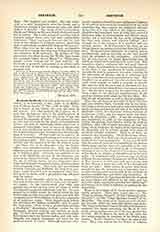

Gervaise, Dom FRANCOIS ARMAND, Discalced Carmelite, b. at Paris, 1660; d. at Reclus, France, 1761. After completing his humanities with brilliant success, he joined the Discalced Carmelites, and having been nominated prior of a convent, he chanced to meet Bossuet, who recognized in him a fervent religious, a learned writer, and an eloquent orator. Anxious to embrace a more austere life, he entered La Trappe in 1695, where he became the privileged disciple of the Abbe de Rance, and made his profession in 1696. In the same year Dom Zozime, who had succeeded the Abbe de Rance after his resignation, died after a few months of administration, and de Rance then asked the king, with the pressing recommendation of Bossuet, for Dom Gervaise as his second successor.
Dom Gervaise had given unequivocal proofs of his religious spirit and his eloquence; these qualifications led to the hope that his appointment would be of the greatest advantage to the reform, and consequently on October 20, 1696, he received the abbatial blessing. But his turbulent administration, which in several points was opposed to that of the Abbe de Rance, soon procured for him numerous enemies who to well-founded accusations added some that were baseless. Dom Gervaise yielded before the storm and tendered his resignation 1698. Soon, however, he regretted this step and tried to withdraw his resignation, but without success. Under the abbot chosen to his place he left La Trappe and began his wandering life from monastery to monastery, exercising to good purpose his talent as a writer. His style is always well-turned and flowing, but he is reproached for being sometimes wanting both in exactitude as to his information and in polemical moderation.
We shall mention only a few of his works: the lives of several Fathers of the Church and ecclesiastical writers; the life of Abelard; the life of Abbot Joachim, Prophet; the life of Suger; a criticism on Marsolier’s “Life of the Abbe de Rance”, in which he makes his own apology; finally, the history of the Reform of Citeaux in France, a work in which he does not treat with sufficient consideration the superiors of the order, and which caused his final disgrace. He was obliged to interrupt its publication, and was banished by order of the king to the monastery of the Reclus, in the Diocese of Troyes, where he died. Until the end of his life he remained faithful to the austerities of the life of La Trappe, observing in all its rigor the rule he had embraced.
EDMOND M. OBRECHT

